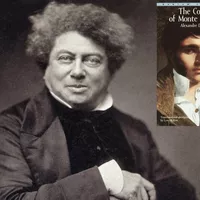Chapter 13. The Hundred Days (1)
M. Noirtier was a true prophet, and things progressed rapidly, as he had predicted. Every one knows the history of the famous return from Elba, a return which was unprecedented in the past, and will probably remain without a counterpart in the future.
Louis XVIII. made but a faint attempt to parry this unexpected blow; the monarchy he had scarcely reconstructed tottered on its precarious foundation, and at a sign from the emperor the incongruous structure of ancient prejudices and new ideas fell to the ground. Villefort, therefore, gained nothing save the king's gratitude (which was rather likely to injure him at the present time) and the cross of the Legion of Honor, which he had the prudence not to wear, although M. de Blacas had duly forwarded the brevet. Napoleon would, doubtless, have deprived Villefort of his office had it not been for Noirtier, who was all powerful at court, and thus the Girondin of '93 and the Senator of 1806 protected him who so lately had been his protector. All Villefort's influence barely enabled him to stifle the secret Dantes had so nearly divulged. The king's procureur alone was deprived of his office, being suspected of royalism. However, scarcely was the imperial power established--that is, scarcely had the emperor re-entered the Tuileries and begun to issue orders from the closet into which we have introduced our readers,--he found on the table there Louis XVIII. 's half-filled snuff-box,--scarcely had this occurred when Marseilles began, in spite of the authorities, to rekindle the flames of civil war, always smouldering in the south, and it required but little to excite the populace to acts of far greater violence than the shouts and insults with which they assailed the royalists whenever they ventured abroad. Owing to this change, the worthy shipowner became at that moment--we will not say all powerful, because Morrel was a prudent and rather a timid man, so much so, that many of the most zealous partisans of Bonaparte accused him of "moderation"--but sufficiently influential to make a demand in favor of Dantes. Villefort retained his place, but his marriage was put off until a more favorable opportunity. If the emperor remained on the throne, Gerard required a different alliance to aid his career; if Louis XVIII. returned, the influence of M. de Saint-Meran, like his own, could be vastly increased, and the marriage be still more suitable. The deputy-procureur was, therefore, the first magistrate of Marseilles, when one morning his door opened, and M. Morrel was announced.
Any one else would have hastened to receive him; but Villefort was a man of ability, and he knew this would be a sign of weakness. He made Morrel wait in the ante-chamber, although he had no one with him, for the simple reason that the king's procureur always makes every one wait, and after passing a quarter of an hour in reading the papers, he ordered M. Morrel to be admitted. Morrel expected Villefort would be dejected; he found him as he had found him six weeks before, calm, firm, and full of that glacial politeness, that most insurmountable barrier which separates the well-bred from the vulgar man.
He had entered Villefort's office expecting that the magistrate would tremble at the sight of him; on the contrary, he felt a cold shudder all over him when he saw Villefort sitting there with his elbow on his desk, and his head leaning on his hand. He stopped at the door; Villefort gazed at him as if he had some difficulty in recognizing him; then, after a brief interval, during which the honest shipowner turned his hat in his hands,--
"M. Morrel, I believe?" said Villefort.
"Yes, sir." "Come nearer," said the magistrate, with a patronizing wave of the hand, "and tell me to what circumstance I owe the honor of this visit." "Do you not guess, monsieur?" asked Morrel.
"Not in the least; but if I can serve you in any way I shall be delighted." "Everything depends on you." "Explain yourself, pray." "Monsieur," said Morrel, recovering his assurance as he proceeded, "do you recollect that a few days before the landing of his majesty the emperor, I came to intercede for a young man, the mate of my ship, who was accused of being concerned in correspondence with the Island of Elba? What was the other day a crime is to-day a title to favor. You then served Louis XVIII., and you did not show any favor--it was your duty; to-day you serve Napoleon, and you ought to protect him--it is equally your duty; I come, therefore, to ask what has become of him?" Villefort by a strong effort sought to control himself. "What is his name?" said he. "Tell me his name."

